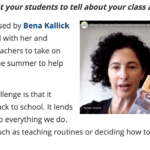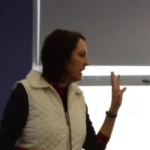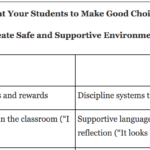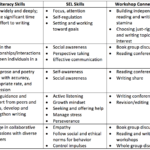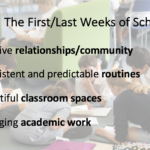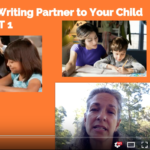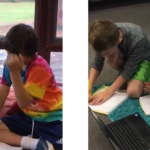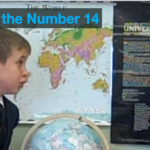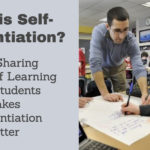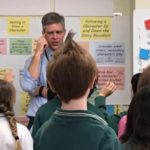We know about the power of relationships. We’ve heard (and believe!) the old adage, “Kids don’t care what you know until they know that you care.” So how do we build and cultivate those all-important relationships…with some of our toughest
Tell a story that you would want your students to tell about your class at the end of the year.
This compelling challenge was posed by Bena Kallick on a recent video interview I had with her and Allison Zmuda.
If you teach reading and/or writing, there’s a good chance that when introducing a new concept or skill, you begin your lesson by saying some variation of, “Good readers….”
“Good readers pay attention to context clues.”
“Good writers add
As the school year winds down, it can be hard for students (and teachers) to keep their positive energy high. With the end in sight, it can be hard to stay motivated to do work. With worries about the end
One of the most deeply held beliefs of many educators is that we should praise students—a lot. Many of us were taught, early on in our careers, that the more we praise our students, the better they’ll feel, and the
This quote is one of my favorites. If you’ve attended a professional development session with me, there’s a good chance I’ve shared this with you at some point. It so clearly articulates the importance of
Childhood anxiety is on the rise. According to research cited in a recent Washington Post article, the diagnosis of childhood anxiety in children ages 6-17 has jumped 20% in recent years.
Traditional praise (such as "Good job!" and "I love the way you're..." can do more harm than good. Read on to find out what to say instead!
The way we introduce learning options to students can make or break a choice experience for students. In this blog post, you’ll learn some practical strategies and ideas from Maggie West, a fifth-grade teacher in Conway, Massachusetts. To get
It seems to be more and more common for teachers to give presentations to adult audiences. Whether it’s sharing with parents at an open house night, making a persuasive speech at a school board meeting, facilitating part of a faculty
“If I give my students choice, I’m worried they’re going to make bad choices,” I often hear teachers say. “They’re just going to choose the easiest option. Or, they’re going to choose what their friends choose.”
There’s no doubt that
Kids who completely disconnect from all literacy and math during the summer may experience the “summer slide.” They return to school in the fall rusty–with little school stamina. They may even lose academic ground that they gained the previous year.
Social-emotional learning (SEL) is a hot topic in schools right now—as it should be. It’s increasingly clear that social and emotional skills are the keys to the kingdom—it’s the skill set that employers are seeking—the skill set that’s less likely to
We all know the importance of the first six weeks of school. We build positive relationships with students and a strong sense of community membership within our classes. We establish consistent and predictable routines to help students feel safe and allow them
Here’s another great post by guest-blogger and teacher, Gillian Andrews. Enjoy!
You may have read my previous blog post, Need More Teachers in the Classroom? Clone Yourself!, and thought this looks like a great idea in theory, but who has
Today’s cool idea comes to us from friend and colleague, Gillian Andrews. Make sure to check out her bio at the end of this post!
How many times on any given day do you catch yourself saying, “I wish there
Rick Gifford knew that a worksheet where students define words and then use them in a sentence wasn’t the most engaging way for them to learn and practice math vocabulary. He wanted to spruce things up and give his students
It’s the beginning of a new school year, and your energy and optimism are high. You’re looking forward to a wonderful year—full of new growth and learning. As you settle in with colleagues for the first staff meeting, you chat
What if the best recipe for creating successful schools was developing relaxed, safe, and joyful ones? What if the key to raising achievement (even as measured by standardized tests) was to have students engage in authentic, student-driven, choice-based, and fun
In survey after survey, business leaders are clear about what they’re looking for in employees. They want creative, dynamic, and independent thinkers. They want people who work well with a variety of people. And, importantly, they don’t want to hire
I wish I could teach social and emotional skills, but there’s too much pressure to teach academics—I just don’t have time!
As I work with teachers in schools across the United States, I often hear some version of this statement.
You already know this, but I’m going to say it anyway. You can’t do it all in these last days of school. Go ahead. Admit it. You have too much planned, and you know no one’s going to come along
How Sharing Control of Learning with Students Makes Differentiation Better
Too often, differentiation (especially when it’s called differentiated instruction) places nearly all of the responsibility and work for differentiation in the teacher’s court. This often results in teachers feeling like
One of the most exciting and enjoyable ways to differentiate learning for students is to lead them through a process of independent research. When students get to dig deeply into something they’re passionate about, they have the drive and stamina
You invested hours and hours of time and energy in the first six weeks of school teaching and practicing routines, and it made a huge difference. Students knew what to do and how to do it, and your classroom (usually) ran


